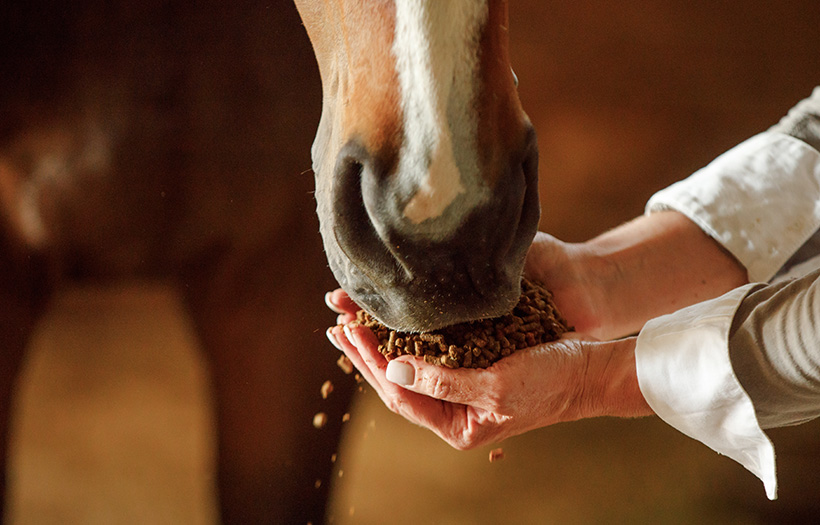B-Vitamins in Horse Diets

Water-soluble B-vitamins, including niacin, thiamine, and folic acid, play a vital role in horse nutrition. These vitamins are excreted daily in urine, making their consistent intake essential. The right amount of B-vitamins in horse diets enable them to metabolize nutrients, supporting growth, performance, and reproduction. While horses can synthesize these vitamins through bacterial activity in their cecum and colon, various factors influence their availability and absorption.
Factors Affecting B-Vitamin Status in Horses
Several factors can impact the synthesis and availability of B-vitamins in horses. It’s important to consider the following:
- Drugs and Their Selective Impact: Some drugs can selectively kill bacterial species responsible for B-vitamin synthesis.
- Feed Availability and Digestive Changes: Horses going “off feed” can reduce the availability of food for the bacteria. Dietary changes altering fiber, carbohydrate, and protein levels passing to the bacteria in the hindgut can also affect B-vitamin production.
Implications of Absorption and Metabolism Issues
Various situations can hinder a horse’s ability to absorb B-vitamins and impact its overall vitamin status. These include:
- Chronic or Clinical Diseases: Conditions that interfere with efficient metabolism by the horse can affect B-vitamin absorption.
- Parasitism: Parasites can cause ulceration of the mucosa and compete for available vitamins in the feed, leading to reduced availability.
- Diarrhea and Moldy Feed: Diarrhea bouts and consumption of moldy feed, particularly hay contaminated by Streptomyces, can decrease B-vitamin levels in horses.
- Stress: Stress has been observed to decrease a horse’s ability to absorb B-vitamins.
- Anti-Metabolites in Plants: Certain plants like bracken fern, yellow star thistle, or horsetail contain anti-metabolites that interfere with thiamin utilization and transport.
Research Gaps and Anecdotal Evidence
While there is anecdotal evidence suggesting the benefits of supplementing B-vitamins to horses, limited research studies have been conducted to determine the actual results of such supplementation. This gap leaves room for further exploration into the positive or negative effects of B-vitamin supplementation, particularly in young, growing horses and performance horses.
Ready to ensure your horse is getting the optimum nutrition at feeding time, every time? Find the perfect feed formulated specifically for horse’s needs with our Feed Selector Tool.
